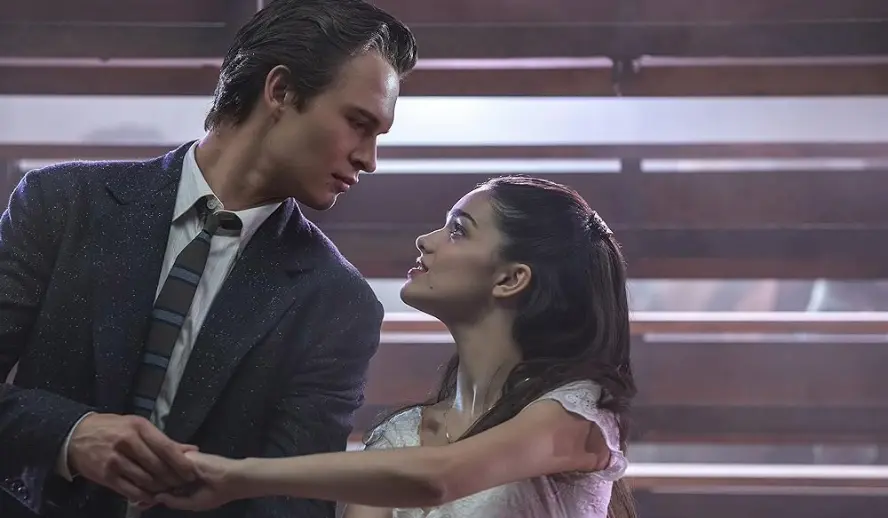Table of Contents

Boycotting has been around for centuries, proving time and time again to be an effective yet peaceful way to call attention to problematic or unjust situations. The aim is to inflict economic loss to an individual, corporation, or, in this case, a film, in order to urge a change in behavior. For the most part, boycotting has been used for the better. Pulling support from people or companies who are harming a community is a great idea. However, in some cases, especially in the film industry, it’s important to think through the entire impact of a boycott before making a decision.
Things to do:
- Subscribe to The Hollywood Insider’s YouTube Channel, by clicking here.
- Limited Time Offer – FREE Subscription to The Hollywood Insider
- Click here to read more on The Hollywood Insider’s vision, values and mission statement here – Media has the responsibility to better our world – The Hollywood Insider fully focuses on substance and meaningful entertainment, against gossip and scandal, by combining entertainment, education, and philanthropy.
Recent Cases of Boycotting Films
In 2019, Disney released a live action remake of ‘Mulan’ in theaters as well as on Disney+. Months before the release, Liu Yifei, the titular lead actress, tweeted her support for the Hong Kong police during human rights protests that resulted in tear gas, rubber bullets, and pepper spray being utilized against protesters. Fans were outraged and called for Yifei to be recast, though she had been involved in the film for years already at this point and was ultimately not replaced. When the film released, a movement of #BoycottMulan gained traction on social media as Disney fans did not want to support an actress who held views supporting the Hong Kong police and Chinese government.
A similar situation occurred regarding the remake of ‘West Side Story’ in 2021. The film stars Ansel Elgort as Tony, the “Romeo” figure and leading man. In June of 2020, allegations of sexual assault from Elgort were brought to the public eye. Understandably, social media users called for a boycott of ‘West Side Story’ as they did not want to support a man who may be an assaulter. Again, people wanted the role to be recast, but filming had already taken place the year prior. Once the film was released, box office sales were not nearly as high as director Stephen Speilberg’s previous projects. Many speculate that the low sales were due to Elgort’s involvement.
WATCH THE TRAILER of the Film and the Revolution: ‘Can I Go Home Now?’
The Children Around the World Continue to Ask the question
The Problem With Boycotting These Films
In the cases of ‘Mulan’ and ‘West Side Story’ it’s vital to consider the impact that letting these films fail would have on the industry. Both films feature casts that represent the cultures that the stories are about. ‘Mulan’ is based on a Chinese legend and takes place in China during the Han Dynasty. While the voice cast for the original 1998 film did feature Chinese actors, it was not as diverse as it could have been. The live action remake, however, featured a cast that was entirely representative of the place and culture the film was set in, demonstrating immense growth from the original film.
This issue is even more prominent in the remake of ‘West Side Story’. The original 1961 film is iconic, both in the film world and the theater world, it received immense praise from critics and became a cultural touchstone. But, the film was inherently racist due to its casting. A significant number of the Puerto Rican characters in the film were played by white actors in makeup to make their skin appear darker. The film’s role as an iconic piece of media means that these racist castings were continuing to be viewed and praised. In the remake, over 20 of the 33 Puerto Rican characters were played by Puerto Rican actors, with the remaining characters played by actors with backgrounds in other Latin countries.
Related article: – Want GUARANTEED SUCCESS? Remove these ten words from your vocabulary| Transform your life INSTANTLY
Related article: Why We Needed a Remake of ‘West Side Story’
Sending the Wrong Message
By allowing films with inclusive, diverse, and accurately representative casts to become box office failures, the message being sent to Hollywood is not necessarily connected to the issue that was being boycotted in the first place. The relative failure of ‘West Side Story’ does not only mean that people do not want to see films with Ansel Elgort, it also can mean that people do not prioritize watching inclusive films. The failure of ‘Mulan’ could mean that people did not want to support Liu Yifei, and it could mean people do not want to see live action remakes. However, it could also mean that people did not want to support the all-Chinese cast.
When deciding to boycott a film, it’s important to consider all the messages that could be sent. Often it is more important to give support to minority groups and social progress that may be in the film, rather than take support away due to one actor’s role. Further than the Latin representation, the ‘West Side Story’ remake featured a transgender character that was not present in the original production. This is yet another matter that was inadvertently boycotted along with the film. Instead of jumping onto a boycotting bandwagon, anyone should think critically about the situation and make an educated decision on whether or not the positive messages outweigh the negatives.
Related article: EVOLUTION: Every Ryan Gosling Role From 1995 to 2020, All Performances Exceptionally Poignant
Related article: EVOLUTION: Every Henry Cavill Role From 2001 to 2021, All Performances Exceptionally Poignant
Related article: Trans Representation in Film, TV & Streaming Must Increase Respectfully
When is it Okay?
Of course, ‘Mulan’ and ‘West Side Story’ are not the only films to be boycotted. Many films are boycotted due to whitewashed casting or racism, misogyny, or sexual misconduct within the film’s production. These are larger matters that are not only related to one actor in an otherwise progressive piece of media. Many films that are boycotted do not carry the significance and reform that ‘Mulan’ and ‘West Side Story’ do, and in these cases, people are welcome to draw whichever conclusion they are comfortable with.
Each situation is unique. Any large protest, boycott, or movement is bound to gain media attention. Every media outlet and every person consuming the media are going to draw their own conclusions on the situation. It’s vital to consider the variety of messages that can be taken from your stance before your opinions and actions enter the public eye. In the end, it becomes a matter of prioritization and deciding which negatives outweigh which positives and considering how your actions can impact the future of the industry.
By Lara Glennon
Click here to read The Hollywood Insider’s CEO Pritan Ambroase’s love letter to Cinema, TV and Media. An excerpt from the love letter: The Hollywood Insider’s CEO/editor-in-chief Pritan Ambroase affirms, “We have the space and time for all your stories, no matter who/what/where you are. Media/Cinema/TV have a responsibility to better the world and The Hollywood Insider will continue to do so. Talent, diversity and authenticity matter in Cinema/TV, media and storytelling. In fact, I reckon that we should announce “talent-diversity-authenticity-storytelling-Cinema-Oscars-Academy-Awards” as synonyms of each other. We show respect to talent and stories regardless of their skin color, race, gender, sexuality, religion, nationality, etc., thus allowing authenticity into this system just by something as simple as accepting and showing respect to the human species’ factual diversity. We become greater just by respecting and appreciating talent in all its shapes, sizes, and forms. Award winners, which includes nominees, must be chosen on the greatness of their talent ALONE.
I am sure I am speaking for a multitude of Cinema lovers all over the world when I speak of the following sentiments that this medium of art has blessed me with. Cinema taught me about our world, at times in English and at times through the beautiful one-inch bar of subtitles. I learned from the stories in the global movies that we are all alike across all borders. Remember that one of the best symbols of many great civilizations and their prosperity has been the art they have left behind. This art can be in the form of paintings, sculptures, architecture, writings, inventions, etc. For our modern society, Cinema happens to be one of them. Cinema is more than just a form of entertainment, it is an integral part of society. I love the world uniting, be it for Cinema, TV, media, art, fashion, sport, etc. Please keep this going full speed.”
More Interesting Stories From The Hollywood Insider
– Want GUARANTEED SUCCESS? Remove these ten words from your vocabulary| Transform your life INSTANTLY
– A Tribute to Martin Scorsese: A Complete Analysis of the Life and Career of the Man Who Lives and Breathes Cinema
– Do you know the hidden messages in ‘Call Me By Your Name’? Find out behind the scenes facts in the full commentary and In-depth analysis of the cinematic masterpiece
– A Tribute To The Academy Awards: All Best Actor/Actress Speeches From The Beginning Of Oscars 1929-2019 | From Rami Malek, Leonardo DiCaprio To Denzel Washington, Halle Berry & Beyond | From Olivia Colman, Meryl Streep To Bette Davis & Beyond
– In the 32nd Year Of His Career, Keanu Reeves’ Face Continues To Reign After Launching Movies Earning Over $4.3 Billion In Total – “John Wick”, “Toy Story 4”, “Matrix”, And Many More

Lara Glennon is an aspiring screenwriter looking to share her love and passion for all things film and television. She aims to use her writing to shine a light on artists who are working to make change, both in media and in the world. The Hollywood Insider’s focus on substance over gossip is perfect for Lara, as she wants to highlight the good in the world and those who create it. She enjoys spending her time creating and consuming art, searching for unique voices and ideas in media.








